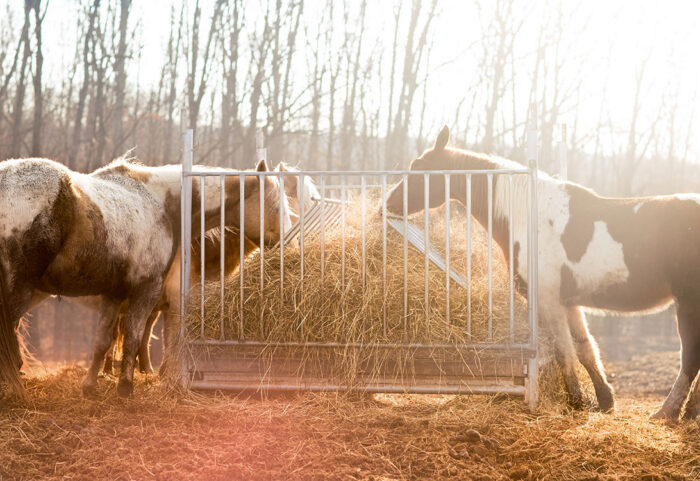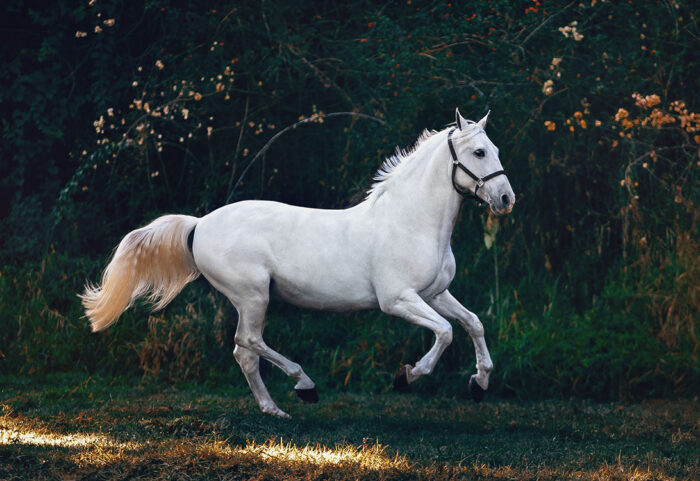What To Look For When Buying A Horse
By sticking to a couple of key principles, you’ll be able to narrow your search to find your trusty steed. Below, we’ll share everything you need to look for when buying a horse.
What Type of Horse Are You Looking For?
Before seeking out your horse, you’ll want to settle on a specific breed. Some of the best breeds for beginners include Quarter horses, Arabian, American Paint, or a Saddle horse. Generally speaking, older horses are more predictable and easier to train than younger horses, so don’t jump at the youngest horse you can find. While breed consideration is important, the best way to get to know a horse is to spend time with it. Note that there are outliers in every breed, so rely more so on the previous owner’s testimony more than anything else. Make sure your horse of choice is a good match for your riding ability.
Consider Your Budget
While the average horse will cost you around $3,000 upfront, the real price kicks in over the course of a lifetime. Hence, it’s essential that you have the budget necessary to support your prospective horse. Horses typically cost around $4,000 a year including estimated vet fees, food, boarding, and general maintenance. You should only start looking for a horse if you’re sure you can cover the associated costs for the foreseeable future. Other options include horse sharing, leases, or loans which may be more financially feasible for some owners over time.
Documentation and Background Information
Before committing to a sale, make sure you have all of your horse’s necessary training history and veterinary records to refer to. Requesting insurance records is also key, as this can reveal any preexisting conditions that should be factored into your final decision.
Take A Test Ride
It’s wise to take a test ride with your prospective horse (or multiple, ideally) to ensure that he’s a good fit for your riding style. You should also observe the current owner riding the horse to get another perspective. Take plenty of notes throughout your sessions along with photos and videos to refer back to while making your decision.
Note Physical Health
By far, the best way to determine your potential horse’s state of health is to purchase an exam by a local veterinarian. The vet will check your horse’s general condition of the eyes, ears, heat, lungs, and digestive systems. They’ll check for parasites and also note the soundness of the muscular and skeletal systems respectively. You should always do a basic examination before calling in the vet to rule out any obviously unfavorable options. That being said, a veterinarian exam should be considered necessary before signing the papers. Keep in mind that every horse will have some negatives. The key is to get a full understanding of whether or not you can accommodate an individual horse’s needs.
Make Sure Your Riding Schedule Is Appropriate
Budget is certainly an important factor, but you’ll also need to make sure that your riding schedule matches your horse’s energy level. You should be matched with your horse in terms of ability as well. It’s a good idea to get your skillset evaluated by a professional so that you’ll know objectively where you stand. This initial investment may seem unnecessary, but it can save you money in the long run when factored into your decision.
If nothing else, take your time. It can be tempting to jump at the first horse you find, but resist the temptation to rush the vetting process. When in doubt, take a quick breath and visualize yourself 5, 10 years down the line– Will you still be able to take care of this particular horse that far into the future? After all, finding the right horse for your needs is no small feat. Hopefully, this list makes it easier for you to find your equine companion.


